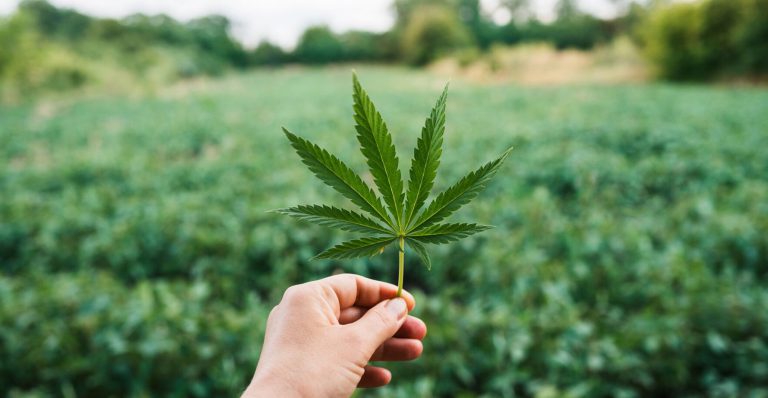ShareWith only Rep. Manny Gregory T. Castro (Ind-Saipan) in opposition, the House of Representatives passed Friday a bill that seeks to remove marijuana from all pre-employment drug testing for government applicants with certain exceptions. With 17 House members voting “yes” during a special session, House Bill 23-50 passed the House. It now goes to the Senate for action. Reps. Edwin K. Propst (Ind-Saipan) and Thomas John Dela Cruz Manglona (R-Saipan) were absent, but excused from the session. Before the voting, Castro said the intent of the legislation is good, but he believes it might cost the government more in the long run. Castro said there is a shortfall in funding allocated to drug testing at the Office of Personnel Management so oftentimes by the time they catch and identify the individuals that have been under the influence of drugs, it’s already years into their employment. “So in essence, it’s a better medium to catch them prior to employment and it saves the government more money by filtering prior to…” he said. Rep. Diego Vincent F. Camacho (D-Saipan), who is the principal author of the bill, said the intent of the legislation really is just to be in line with Public Law 20-66, the Taulamwaar Sensible CNMI Cannabis Act of 2018. Public Law 20-66 authorized the personal, medicinal, and commercial use of cannabis/marijuana. Camacho said the pre-employment matter was not addressed in Public Law 20-66. “Really the intent of this legislation is for the initial drug testing, anything after that is on the employee or the employer,” he said. Camacho said the legislation also addresses that any position that is federally funded, even partially, will be the exception to include positions that are safety sensitive. He said it also authorizes the director of OPM to identify these positions. Rep. Roman C. Benavente (Ind-Saipan) said he is supporting the legislation for the fact that marijuana use is already a law and it’s already approved here in the CNMI. “We’re allowed to use it and not only that, the health benefits, there are some health benefits behind it that really help in the community,” Benavente said. He said he knows the abuse part, but that he is looking at the health part. In supporting the bill, Rep. Vicente C. Camacho (D-Saipan) said they’re always talking about workforce and there’s a lot of people that want to work, but this drug testing for the presence of marijuana seems to be the block. “It’s already here. I think that people are smart enough to understand that when you do accept the job, there are policies to follow,” Camacho said. Under the bill, pre-employment testing for the presence of marijuana shall not apply to applicants for government jobs in safety sensitive positions, meaning jobs that involve activities which directly affect the safety of one or more persons, including the operation of motor vehicles, heavy machinery, emergency services or the carrying of firearms. The House Judiciary & Governmental Operations Committee chaired by Rep. Marissa Flores (Ind-Saipan) recommends the passage of the bill. According to the committee’s report, it would be highly appropriate to regulate marijuana in the same manner as alcohol. The report states that when an employee is off-duty, he or she has the freedom to consume alcohol after working hours. The committee finds that it would be highly appropriate to afford the applicants and employees with the same freedom in allowing them to use marijuana at appropriate times where their working abilities are not altered, especially after working hours. The committee noted that Civil Service Commission chair Raymond M. Muña supports the legislation. Muña stated that while they support the removal of marijuana testing for most government applicants, they recognize the importance of maintaining a workplace that promotes good health and responsible behavior. The committee also sought comments from the Office of the Attorney General, the Department of Labor, Substance Abuse Addiction and Rehabilitation Program, and Commonwealth Cannabis Commission, but to date, no comments were received from such agencies. Read More
July 31, 2023
6 min read

ShareWith only Rep. Manny Gregory T. Castro (Ind-Saipan) in opposition, the House of Representatives passed Friday a bill that seeks to remove marijuana from all pre-employment drug testing for government applicants with certain exceptions. With 17 House members voting “yes” during a special session, House Bill 23-50 passed the House. It now goes to the Senate for action. Reps. Edwin K. Propst (Ind-Saipan) and Thomas John Dela Cruz Manglona (R-Saipan) were absent, but excused from the session. Before the voting, Castro said the intent of the legislation is good, but he believes it might cost the government more in the long run. Castro said there is a shortfall in funding allocated to drug testing at the Office of Personnel Management so oftentimes by the time they catch and identify the individuals that have been under the influence of drugs, it’s already years into their employment. “So in essence, it’s a better medium to catch them prior to employment and it saves the government more money by filtering prior to…” he said. Rep. Diego Vincent F. Camacho (D-Saipan), who is the principal author of the bill, said the intent of the legislation really is just to be in line with Public Law 20-66, the Taulamwaar Sensible CNMI Cannabis Act of 2018. Public Law 20-66 authorized the personal, medicinal, and commercial use of cannabis/marijuana. Camacho said the pre-employment matter was not addressed in Public Law 20-66. “Really the intent of this legislation is for the initial drug testing, anything after that is on the employee or the employer,” he said. Camacho said the legislation also addresses that any position that is federally funded, even partially, will be the exception to include positions that are safety sensitive. He said it also authorizes the director of OPM to identify these positions. Rep. Roman C. Benavente (Ind-Saipan) said he is supporting the legislation for the fact that marijuana use is already a law and it’s already approved here in the CNMI. “We’re allowed to use it and not only that, the health benefits, there are some health benefits behind it that really help in the community,” Benavente said. He said he knows the abuse part, but that he is looking at the health part. In supporting the bill, Rep. Vicente C. Camacho (D-Saipan) said they’re always talking about workforce and there’s a lot of people that want to work, but this drug testing for the presence of marijuana seems to be the block. “It’s already here. I think that people are smart enough to understand that when you do accept the job, there are policies to follow,” Camacho said. Under the bill, pre-employment testing for the presence of marijuana shall not apply to applicants for government jobs in safety sensitive positions, meaning jobs that involve activities which directly affect the safety of one or more persons, including the operation of motor vehicles, heavy machinery, emergency services or the carrying of firearms. The House Judiciary & Governmental Operations Committee chaired by Rep. Marissa Flores (Ind-Saipan) recommends the passage of the bill. According to the committee’s report, it would be highly appropriate to regulate marijuana in the same manner as alcohol. The report states that when an employee is off-duty, he or she has the freedom to consume alcohol after working hours. The committee finds that it would be highly appropriate to afford the applicants and employees with the same freedom in allowing them to use marijuana at appropriate times where their working abilities are not altered, especially after working hours. The committee noted that Civil Service Commission chair Raymond M. Muña supports the legislation. Muña stated that while they support the removal of marijuana testing for most government applicants, they recognize the importance of maintaining a workplace that promotes good health and responsible behavior. The committee also sought comments from the Office of the Attorney General, the Department of Labor, Substance Abuse Addiction and Rehabilitation Program, and Commonwealth Cannabis Commission, but to date, no comments were received from such agencies.

Leave a Reply
You must be logged in to post a comment.